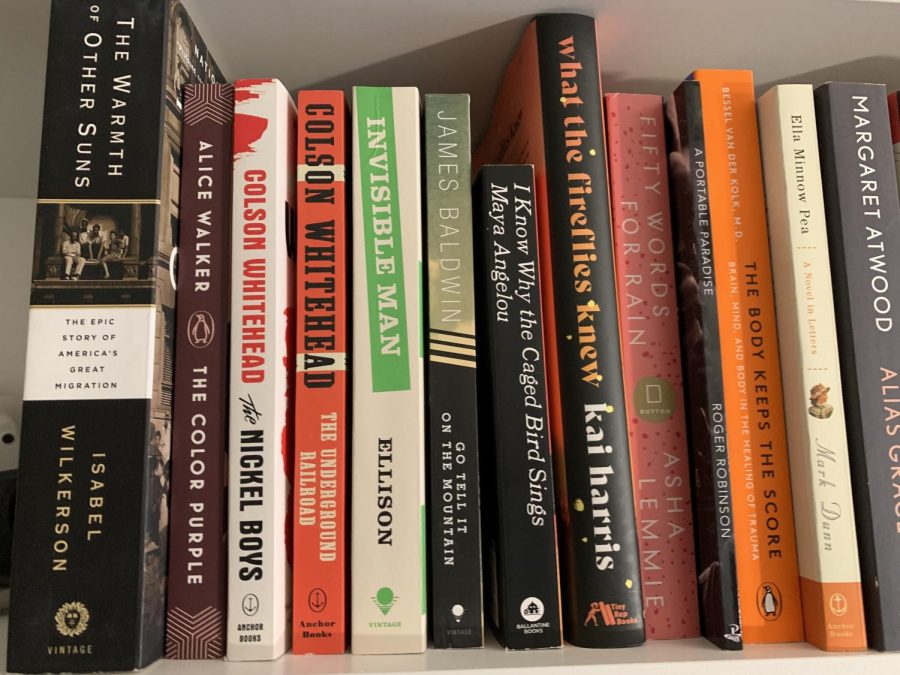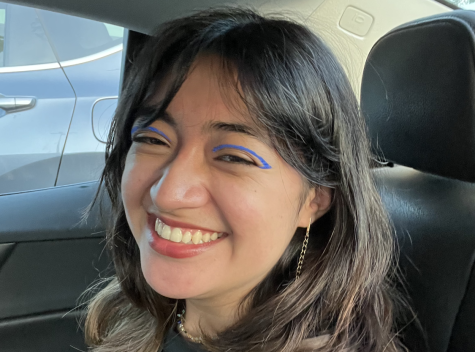During Black History Month, the intentional inclusion of Black creators, scholars, writers and musicians is particularly highlighted. Still, it is important we all are aware that diversifying the sources of the media and art we consume goes beyond a commemorative month. In literature, it is unfortunate and outrageous that the voices of Black people are still on the fringe–and this can hardly be ascribed to a lack of material.
Even for the average bookworm, it is more than likely that Black authors are embarrassingly underrepresented on their bookshelves–myself included. In spite of a substantial and continuously growing body of praiseworthy and masterful writing by Black authors, very few works have come to be considered “classics.” We should not only seek to hold more inclusive libraries for the sake of diversity and we truly are at a loss for neglecting to engage with the written voices of Black folks.
In the spirit of not only diversifying our library, but also of enriching our lives with some of the noteworthy, heart-wrenching, and deeply-moving writing by Black authors, here is a necessarily incomprehensive list of book recommendations to provide some deeply thought-provoking reading material.
“Their Eyes Were Watching God” by Zora Neale Hurston is undeniably a staple of Black literature. Closest to being considered a classic, Hurston’s Harlem Renaissance novel follows the story of Janie Crawford as she reclaims her life after the death of her abusive first husband. Unjustly tried for murder and found innocent, Janie returns to where she lived with her first husband and must deal with the community’s gossip. Hurston’s most popular work, “Their Eyes Were Watching God” has been acclaimed for being greatly influential for both African American literature and women’s literature, and is a must-read for any avid reader.
From the first African American winner of the U.S. National Book Award for Fiction, “Invisible Man” is notable for Ralph Ellison’s self-described “experimental attitude.” In contrast to many African American novels written in protest at the time, Ellison’s unnamed main character is self-admittedly “not complaining, nor… protesting.” The novel explores topics of personal identity and individuality as the narrator discusses his own invisibility throughout his life, is admitted and later expelled from an at the time all-Black college (now to be considered a Historically Black College), and temporarily becomes a speaker for the Brotherhood, a group that seeks to improve living conditions in Harlem.
Internationally acclaimed author and civil rights activist Maya Angelou published a series of seven autobiographies, the first of which follows her life up to the age of 17 and earned her international recognition. “I Know Why the Caged Bird Sings,” written in deeply poetic prose, is Angelou’s own coming-of-age story that shows how crucial literature and poetry were in her growth and journey to reclaim her voice and agency. Although controversial in its implementation in high school programs due to the at-times graphic depictions of sexual violence, the autobiography is perhaps all the more impactful and relevant due to its authentic depiction of Angelou’s struggles.
For those interested in historical fiction, “The Underground Railroad” by contemporary author Colson Whitehead is a must-read. The Pulitzer award-winning novel follows two slaves who run for their freedom by using an underground railroad system in their journey to freedom in the West, which is painfully colored with death, racism, and the peril of being captured again. A wonderful alternate history novel, “The Underground Railroad” is a marvelously inventive work that provides insightful commentary on both the past and present lives of African Americans in the United States.
Last but definitely not least, “Go Tell It on the Mountain ” is a semi-autobiographical work by James Baldwin that explores the various roles and influences the Pentecostal Church had on the lives of African Americans in Harlem. Criticizing the Pentecostal Church that Baldwin himself became a preacher of as both a source of repression to a fountain of community, Baldwin tells his story in a notably creative format in two parts, the latter of which is divided into three parts. Baldwin, who was one of the few openly gay civil rights activists, has been not only an important figure in African American literature, but also in queer literature as his stories often feature gay and bisexual men. His entire body of literature is an easy recommendation, although “Go Tell It on the Mountain” is perhaps amongst the most insightful of his writings due to its autobiographical nature and the multifaceted issues it addresses.









